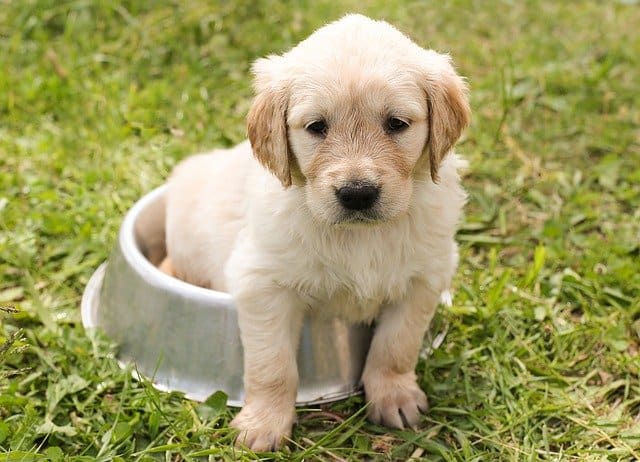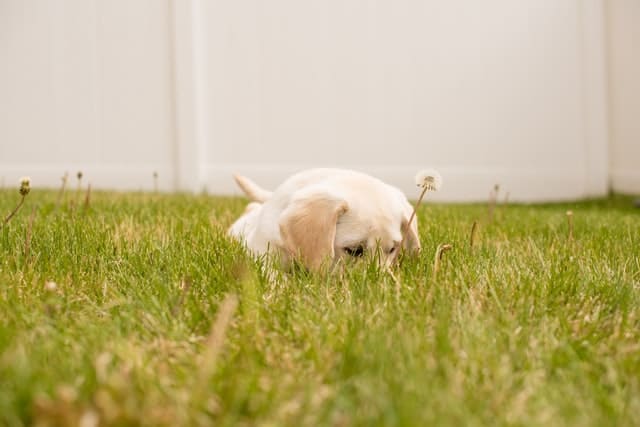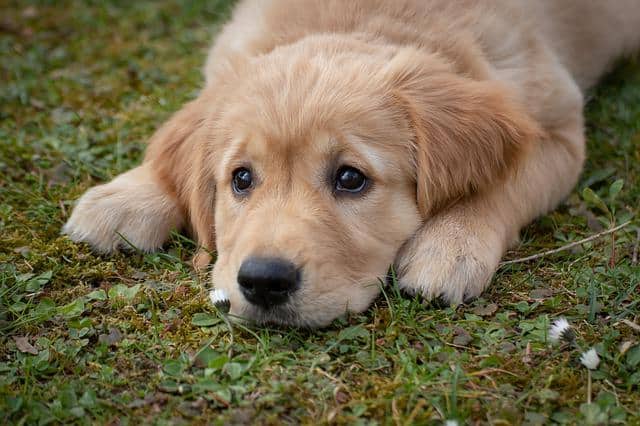Everyone loves to watch their puppies sleeping. When they snooze, puppies get even cuter than usual. In fact, the peace you see on their face while sleeping is second to none. Even better, if they sleep while snuggling you, they are the cutest creatures in the world. With all of these beauties, you should be more attentive to their health and safety. Paying attention to their heart rate is one of the essential measures you should take to ensure your puppies are healthy.
Contents
Wherever your puppy sleeps should be comfortable and safe. If you see it breathing fast while sleeping, or notice its heart rate to be high, you may get worried about the causes and consequences. The question is, should you be worried at all? The answer is that It depends on the cause or causes.
In this article, we are going to learn valuable information about puppies' heart rates and breathing rates when sleeping, and if we should be worried about it. Also, we will discuss the symptoms and treatment of the high breathing rate in puppies while sleeping.
Normal Heart Rate and Breathing Rate in Puppies

Generally speaking, a puppy’s breathing rate is not very high. Most of the time, puppies breathe 10 to 35 times per minute. This is normal and you should not be worried about it. However, when your puppy is exercising, its breathing rate increases significantly, maybe as much as 10 times. Therefore, they will breathe 100 to 350 times per minute when exercising. Despite that, some vets say there are puppies with lower breathing rates during a minute.
In the case of heartbeats, puppies can have resting pulse rates of 160 to 200 beats per minute when they are born, which increases to 220 beats per minute when they are two weeks old. Up to 180 beats per minute are considered normal for a dog that is one year old. If you are worried about how slow or fast your puppy’s heart beats sometimes, pay your vet a visit to find out the normal heart rate for your specific puppy.
How to Calculate Your Puppy’s Breathing Rate and Heart Rate

It is obvious that evaluation of your pet’s breathing rate while it is actively playing gives you higher results. Therefore, you should try to calculate it while your pet is sleeping.
To calculate your pet’s breathing rate, follow these steps:
- Set a timer for 30 seconds in advance.
- Closely watch your puppy’s chest rising and falling while it is sleeping. That is how you can be sure about your pet inhaling and exhaling.
- Count the number of breaths. A breath equals one rise and one fall in your puppy’s chest.
- Repeat the process for 30 seconds. Multiply the number of breaths by two to calculate the total number of breaths during 60 seconds or one minute. The result is in fact your puppy’s breathing rate.
If you do not like the multiplication method, you can set your timer to 60 seconds to get more accurate results. To calculate your puppy’s heart rate, the process is pretty similar, except that you should put your hand on your dog’s left side behind the front leg, or the inside of the top of your dog’s hind leg and count the number of heart pulses in a minute.
Cause of High Breathing Rate in Puppies

Now, if you have calculated your puppy’s breathing rate and found it to be high, what should you do? There are several factors that might make your puppy breathe faster than usual during sleeping. In such cases, you do not need to panic. The best approach is to contact your vet and ask for help to get the best results.
In the meantime, it is good to know some common causes leading to elevated breathing rates in puppies while sleeping.
Cooling Down

If you see your puppy breathing fast while sleeping, chances are high that your pet is still cooling down after a tough exercise. Dogs do not sweat and do not have a specific mechanism to cool down their body after going through a rousing day and exercising excessively.
Therefore, dogs normally breathe fast during sleep to remove the heat from their body and cool it down. This is their normal mechanism to regulate their body temperature. If you took your pet out for a walk or went on a power exercise together, they may still be breathing quickly even when they have just gone to sleep.
Hot Weather

It is again good to know that dogs do not sweat. They lose their body's high temperature by breathing quickly. As a result, if it is a hot day, your pup is prone to breathing quickly even while sleeping.
Heatstroke is highly dangerous for dogs, just like it is for humans. The best approach in such cases is to prevent your dog’s body from overheating. To do so, make the area where your dog is resting cooler, or move your dog to a cooler space like inside your house on hot summer days. Also, make sure there is plenty of water available for your pet to help it cool down its body.
Toxic Food

This case is extremely important. Sometimes your puppy may mistakenly eat something it should not have, such as onions and garlic. In these cases, your pet may breathe so quickly.
This case is fatal and you must call poison control or your vet as soon as possible to report the situation and ask for help. Toxic food can be extremely dangerous and requires immediate action.
Trachea
Windpipe in dogs is called trachea. If the trachea in dogs collapses or is pressurized massively, your puppy will probably start breathing more quickly than before. When tracheal issues occur in dogs, it gets increasingly difficult for air to pass through the windpipe and find its way into the puppy’s lungs. Also, dry coughs can be among the symptoms of trachea problems in dogs.
Trachea problem is more common in older dogs. However, puppies can also experience this issue in some conditions. Also, certain breeds such as chihuahuas are more prone to suffering from tracheal collapses.
Heart Problems
In some cases, your puppy’s heart may have problems leading to heavier breathing. Heart issues in dogs are highly important and require your prompt response. If your pet is diagnosed with ticker trouble, your vet will possibly need you to more frequently monitor your dog’s breathing rate while resting.
Other Problems

Other than the causes mentioned above, there are several issues that may lead to a high breathing rate in your puppies. A fairly complete list of these issues includes:
- Breed characteristics
- Asthma
- Laryngeal Paralysis
- Kennel Cough
- Rhinitis (fungal or bacterial infection in the chambers of the nasal system)
- Stiffness in airways
- Inhalation of smoke
- Lung diseases (including cancer, parasitic infection, or pneumonia)
- Heatstroke
- Nausea
- Anaemia
- Medication
- Pain
Symptoms of Fast Breathing in Puppies
Although it is normal to see your dog breathing so fast after exercising or vigorous activities, the cause of this fast breathing might be something other than exercising. If your dog has gone through difficulties breathing or is experiencing respiratory distress, you may notice the problem by seeing these signs:
- Your dog is using its stomach muscles to breathe more comfortably.
- The puppy is unwilling to drink, eat, and move.
- Its gums are pale, blue-tinged, or brick red.
- Your pet is drooling.
- The dog is breathing open-mouthed.
- The way that your pet is breathing is louder and different than usual.
Treatment of Fast Breathing in Puppies

Once you detect the problem in your puppy’s breathing mechanism, the best and quickest approach is to make an appointment with your vet. The vet will perform a thorough physical examination to find out if the issue originates from the heart, lungs, airways, head, neck, circulatory system, or other sources. Also, a general health problem may be causing some issues.
The vet may ask you several questions about your dog and the history of its medical status. In the meantime, they may take X-rays to check the lungs, heart, and abdomen for different problems including lung tumours or damaged ribs. Plus, other organs are also examined.
At the next step, your vet can search for signs of anxiety, stress, or other psychological problems with your assistance. The final treatment will be based on the underlying cause of the issue. The vet may prescribe intravenous fluids with calcium, pain relief, or medication.
In the case of anxiety and stress, the vet may suggest special training with a certified dog behaviourist. Whatever the cause is, oxygen therapy and resting are required. In most cases, your dogs are allowed to be treated and looked after at home. However, other dogs may require to be constantly monitored. The truth is that hospitalization is the most secure option for dogs that suffer from serious diseases.
Please note that the advice mentioned in this article is only for informational purposes and does not include medical advice for your pet's situation. If you need an accurate diagnosis of your pet’s conditions, the best solution is to visit your vet as soon as possible.
Conclusion

It is worrisome to see your puppy’s heart rate is high or it breathes fast while sleeping. The first step is to calculate its heart rate and breathing rate in a minute. Generally, anything over 30 to 35 breathes per minute, and 200 to 220 heartbeats per minute is cause for concern.
It is good to know that dogs may breathe faster when sleeping if they have just played or exercised, resulting in higher heartbeats as well. Also, a hot weather temperature can make a puppy breathe faster, as there is no sweating mechanism in dogs. Make sure that your dog’s space is not too hot, and provide it with plenty of water.
What’s more, a fast breathing rate can be a result of something more serious, including food poisoning or heart disease. In such cases, the best approach is to call your vet and ask for help. They can examine your pet and tell you if further treatment is required.




